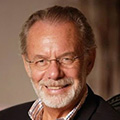Information is power – but good, accurate information can be hard to come by without journalists who operate with integrity and transparency. Oklahoma is a state rich in both natural resources and history, and that means there are many, many stories to be told, and that’s where these four remarkable Oklahoma journalists come in.
From racial segregation to the space race, these four outstanding individuals have stood in the face of many different social and political issues and vowed to provide the public with an accurate birdseye view on the issues that impact them and their loved ones – sometimes even in the face of physical threats upon their wellbeing.
Together, let’s dive into their stories and how their actions impacted Oklahoma journalism as a whole.
Ken Neal
Born near Mannford, Oklahoma, in 1935, Ken Neal's story is one of hard work, journalistic integrity, and reaping the rewards of a steady grind toward excellence, transparency, and educating the public on key issues that impact their daily lives. As such, Ken Neal has received much recognition for his work.
Today, he’s heralded as one of Oklahoma’s best in the Oklahoma Journalism Hall of Fame and Sand Springs High School Hall of Fame. Furthermore, Mr. Neal is also a member of Phi Delta Kappa, an education-oriented fraternity, and is recognized as an individual with an “outstanding news media contribution to education.”
However, Ken Neal’s large body of work and considerable influence in Oklahoma journalism didn’t appear overnight – and his story begins like many others: with a seemingly random opportunity he decided to take.
In January of 1953, Ken Neal was a 17-year-old senior in Sand Springs High School when his journalism instructor, one Ronnie Roberson, recommended he sign up for the Tulsa World as a copy boy as a part-timer. Upon heading down to the office and signing up for the job, Ken Neal was asked to immediately start work the very same night.
Copy boys, in the days before email and the internet, were junior workers who ran copy – or stories and articles – from one department to another. Through their toil, stories made their way from their authors’ hands into newspapers, making them indispensable before modern printing technology. Being a copy boy also served as a nice entry point for aspiring writers – and that’s exactly what Ken Neal did.
After a few months as a copy boy, Ken Neal moved on to an oil writing job under Sid Steen, who was the managing editor at the paper. Over the next few years, he explored a smattering of different positions, from church editor, state editor, to copy editor. This meant he rubbed shoulders with many colorful characters, from James L. Maxwell, four-time mayor, to long-time employees who had outlasted several mayors’ terms at City Hall.
Once Ken Neal’s stint at City Hall was over, he spent a few years covering the courthouse circuit, which resulted in Mr. Neal building a rather substantial knowledge of the goings-on in courtrooms while also developing working relationships with various judges and attorneys. After two years in the courthouse, Ken Neal returned to the Tulsa World as an editor and later covered the 1972 charter race and expanded into local and nationwide politics in 1974.
When asked what aspiring writers should know if they dare to get into journalism, Ken leans on the virtue of hard, long work, saying:
“One time a young reporter came to me, I was in the department, I’m not sure – I was head of the department then. She’d had about three or four years experience and she said, ‘I’d like to start writing editorials. How do I do that?’ I said, ‘Well, I was here twenty-five years before they let me loose.’”
— Ken Neal
Chapter 11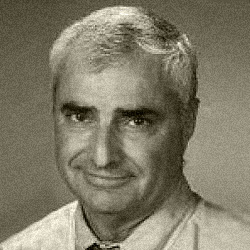
Today, Ken Neal’s long and storied career has settled after retiring at the age of 70 years old, and his focus has found itself on collating his old editorial work for his family and generations to come.
Joyce Jackson
Joyce Brenda Jackson, born on October 28th in 1944 in Anadarko, Oklahoma, was a prominent broadcast journalist, show producer, and talk show host who also served as the voice of the black community during a time of racial discrimination. As the first black woman hired to be on Oklahoma television, her story is one of beating the odds, facing real threats of violence, and standing up for her community.
Despite her reputation as a charming woman on air, Joyce Jackson describes herself as being bashful in her early years in school – which is where she ended up in Miss Clara Luper’s class. Under Miss Luper’s tutelage, Joyce Jackson was faced with the realities of racial discrimination. At the time, African-American folks weren’t allowed to dine or even shop with white people, and that’s when the sit-ins at various diners began.
Though not part of the original 13 students who participated in the first sit-in with Miss Clara Luper, Joyce developed a passionate interest in participating in these non-violent demonstrations even as a 14-year-old. During these sit-ins, Joyce Jackson learned much of what it meant to be non-violent while also standing her ground.
“Well, they would teach us to be nonviolent because she would have sessions when we start meeting at Calvary. They would, each time, we would have a prayer. We would have songs to kind of build us up; and then we would go through the techniques of being nonviolent: turn your head, not be aggressive, not talk loud -- even how to sit on the floor so that if they hit you, you wouldn't fall over. Those were the techniques that they taught us. And we went through those techniques each time we got ready to go on a march; and we would march two by two downtown.”
— Joyce Jackson
Chapter 3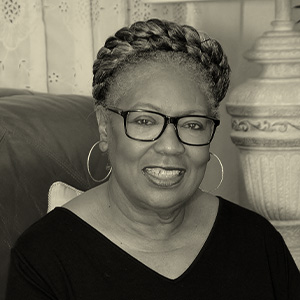
As Joyce Jackson grew older and began her college education, her inclinations toward social justice grew, too. Upon moving to Oakland from Oklahoma for college, she found herself living across Bobby Seale, who eventually became one of the founders of the Black Panthers. Naturally, Joyce partook in the party’s foundational era by feeding and tutoring children after school.
However, as the Black Panthers began arming themselves in self-defense, 19-year-old Joyce Jackson’s father decided to send her back to Oklahoma to keep away from the movement. Upon returning home, Joyce eventually found herself a career at Channel 5 through the Opportunities Industrialization Center (OIC) but found herself faced with the challenge of being the only black employee at the station – and a shy one, at that.
Over time, she took up the mantle as host to several shows, including “The Now Generation,” “What’s Happening,” and “The Black Review,” the latter of which she eventually handed off to prolific Oklahoman DJ Ben Tipton after the station took him on after being “blackballed,” or banned from the air. In exchange, Joyce was given “The Saturday Review.”
During her time at Channel 5 KOCO, Joyce rubbed shoulders with many notable personalities: Ida B, Ho-Ho the Clown, Ed Birchall, and Jane Jayroe, to name a few. As her career began to ramp up, Joyce found herself covering a wider spectrum of topics while also working through her degree at Central State University.
When asked, one of the most significant stories Joyce recalls covering is the Penn Square Bank closure. At the time, her husband’s colleagues mentioned the bank closing due to financial troubles associated with the oil boom, and when the station’s attempts at corresponding with the bank president were ignored, they showed up at the place with cameras rolling.
While the bank president denied everything, the bank closed shortly after – causing hundreds to line up to try and retrieve their money. Channel 5 was the first (and only) station to cover the closure. ABC purchased the rights to air Joyce’s coverage on a national scale. This renown led to offers and accolades like the Peabody Award – but she stayed rooted to good old Oklahoma.
Not everything was daisies and roses, however, and as a prominent black woman in broadcasting, Joyce Jackson was not always well-received. Her presence elicited protests and threatening phone calls, but she fought for a fair and balanced perspective when reporting on news that involved her community, nonetheless.
In the years following, Joyce left her post at Channel 5 and became a trainer at the National Institute of Corrections before moving on to becoming the communications officer for the director of the department. Her experience with the Department of Corrections netted her an intimate understanding of the judicial system, and today she remains a staunch believer in proper representation for all.
Through her storied life and first-hand experiences with discrimination, crime, and how the government handles it, Joyce maintains a positive outlook about the future and advises tomorrow’s youth as such:
“My advice is to dream big and to know that the world is open to you today -- like it's never been open to you before. And you have the right, and you have all of the resources available to you.”
— Joyce Jackson
Chapter 17
Frosty Troy
Forrest “Frosty” J. Troy was born on June 19, 1933, in McAlester, Oklahoma, and became one of the most prolific editors of his time for his work at the Oklahoma Observer. His expertise spanned many topics, from politics to social issues to education – all garnering recognition and awards from places like a spot on the Oklahoma Journalism Hall of Fame, the Walter Cronkite Faith and Freedom Award, and the National Champion of Children Award.
However, his story is one that’s incredibly down-to-earth and relatable at its very core. As a child, Frosty Troy was an avid reader but also a troublemaker, as he recalls a teacher having to tie him to a chair to keep him from wandering. The McAlester Public Library became his home away from home, and those walls nurtured his love for reading while working through ninth and tenth grade in seminary school at St. Vincent’s DeSales.
That said, priesthood didn’t seem to be the endgame for Frosty Troy, and he ended up back at St. John’s and continued to develop his love for the written word by working as a correspondent for his school’s paper: The St. John’s Siren. During his time at school, he covered school-exclusive events and featured stories on interesting students at the school. His love for journalism followed him all the way to Oklahoma University, where he spent two semesters before dropping out to work at the Tulsa Tribune as a city hall reporter on the recommendation of the then-Dean of Journalism.
But in 1950 – the same year he dropped out – the Korean War began, and Frosty and his two brothers, Kevin and Johnny, were mobilized as part of the 45th Division and were sent to train at Camp Polk in Louisiana. At the time, Senator Bob Kerr opposed the mobilization of their division, but the Troy boys refused to stay inactive and transferred to different departments, with Frosty joining the 1st Cavalry in Korea.
Over his time in Korea, Frosty wrote about his experiences on the battlefield to Howard Cowan back at the McAlester News Capitol, which sometimes made it to his own column called Sideswipes. While seemingly innocuous, Frosty found himself arrested and interrogated by CID agents who threatened to court martial him if he didn’t clear what he wrote first.
He also wrote to his fallen comrades' families at home because of his marked writing skills – and he recalls his years-long correspondence with one Californian mother who lost her only son in the war.
Beyond this, Frosty’s life was wrought with loss. His brother, Kevin, was reported dead through a field phone call – and Frosty himself escorted the body home with a Bronze Star on his uniform. Upon returning home, however, Frosty’s experience with loss was not yet over. His other brother, Johnny, struggled with the realities of having fought in numerous tours and eventually ended his own life.
Frosty Troy lost two brothers to the conflict they had all faced.
Back home, Frosty found a spot at Muskogee Daily Phoenix, but quickly ended up leaving for a position at the Lawton Constitution before transitioning to KSWO Radio and TV. He also ended up meeting his wife, Helen, and later eloped with her in 1953 due to religious differences. Together, they adopted one girl, Marti, and one boy, Phillip.
However, the years following were once again marked with loss, and a medical mistake where blood thinners were given in lieu of coagulants resulted in the death of his wife, Helen. Distraught, Frosty decided not to pursue legal action – recognizing that it wouldn’t bring back the love of his life. As it turned out, however, Helen was looking out for the family for longer than he had realized.
Frosty discovered that Helen had set up a trust worth $3.4 million, which, combined with his steady income through Social Security, gave him a platform to rediscover his love for writing and advocacy. He spoke at many public events concerning mental health and childcare while also developing his large body of work. This resulted in him eventually covering two years of Jack Kennedy and the first year of Lyndon Johnson in Washington for the Tribune.
Through his many public speaking engagements and columns, Frosty met dozens of very interesting individuals over the years – some in high government positions, while others marched the streets in protests. This paved the way for a fateful call from Father Johnny Joyce, which ended in Frosty Troy taking over the Oklahoma Observer for the grand sum of one dollar.
Within two years, the Oklahoma Observer became profitable through its wide range of topics and sometimes critical coverage – but mostly because of its steadfast commitment to independence, integrity, and refusal to compromise its editorial stance. Because of his unwavering passion for transparency, however, Frosty sometimes found himself physically threatened, specifically when he uncovered the corruption in the Oklahoma County Commissioner.
“Yeah I was, I had all the windows broken out of a car in the driveway one night. And then Carl Twidwell rang the doorbell and he said, “Step out here, I’m going to whip your —”
And Helen heard him. And we were up, it was after dark. And she said, “You get off of my porch or I’m going to call the police.” And he said, “I’ll get you, I’ll get you.” He never did get me. And then we had our front porch, the windows on the front egged, and that’s, you’d think that would wash off easily. It doesn’t, it doesn’t.”
— Frosty Troy
Chapter 24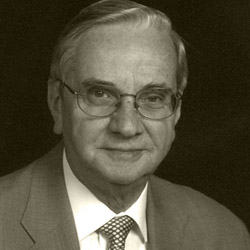
When prompted, Frosty Troy says he hopes to be remembered as someone who addressed the social issues of the day. He emphasizes the importance of fair taxation, adequate funding for public education, and recognizing that higher education is not for everyone, highlighting the need for proper funding for career and technical education.
Alex Adwan
Alex Adwan was born in Maud, Oklahoma on the 14th of April, 1930. Once an Oklahoma Military Academy student turned tank platoon leader, this war veteran went on to become a prolific journalist, with some of his most important pieces covering orbital space missions and the beginnings of Project Apollo.
Over time, he held many communications-oriented positions before settling in with Tulsa World as a correspondent, then associate editor, then senior editor. His work has earned him a spot in the Oklahoma Journalism Hall of Fame among many other awards.
Born during the Great Depression, Alex Adwan’s family knew struggle – but they knew resiliency just as well. Alex’s family ran a grocery that sold people the goods they needed on credit, and he recounts fondly of how everyone used to come and pay what they owed despite financial difficulties.
In the years following, Alex’s interest in journalism, politics, and civics was sparked by one of his teachers, Miss Bessie Lee Harris, and he excelled at school, eventually skipping seventh grade and enrolling at the Oklahoma Military Academy for eighth grade and beyond. Despite the rigor of being in a military academy, however, Alex Adwan retained his interest in writing and journalism and already knew, as a teenager, that he wanted to work at a newspaper and went on to enter the University of Oklahoma School of Journalism.
However, right after graduating, Alex Adwan was called into Battle in June of 1950 to fight in the Korean War, where he served with the 45th Division Oklahoma National Guard but later moved to a different company with “the men that he knew.” Later, he became a tank platoon leader as a second lieutenant.
During his service, his company supported the South Korean forces when they lacked their own tanks, detailing the experience like so:
“We sat there and looked at one another most of the time and if we saw something to shoot at we’d shoot at it, if we didn’t, sometimes we’d just try to break up a bunker. The enemy had artillery, he had tanks, but he never brought them out in the daylight. We had air superiority. But he had deadly mortars, they could operate those in daylight because they could conceal them. And that was probably the worst thing. That and mines bothered us.”
— Alex Adwan
Chapter 5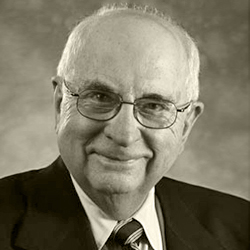
After his service, he returned home to Oklahoma in 1952 and rejoined the Seminole Producer, which now shared a parent company with the Wewoka Times. Alex Adwan wrote for both papers and covered the courthouse beat. In 1960, Alex joined United Press International (UPI) as a bureau manager before moving on to Houston and (literally) setting his sights upward.
Specifically, he recounts his coverage of Carpenter's orbital flight, which was the first US-manned flight to last an entire day. He continued covering the space race and President Kennedy’s announcement that he’d send a man to the moon.
Years later, he returned to Oklahoma to cover a slew of significant social events from the elevation of Carl Albert to Speaker of the House, to a brush with Martin Luther King, to even an interview with Richard Nixon in 1964.
However, despite his time with high-profile social and political leaders, Alex Adwan’s true passion lies in public education and the legislature that surrounds it within Oklahoma. He believes that education truly is the foundation for a successful society. Today, he advises young aspiring journalists to develop their communication skills:
“I would advise anyone who is going into it to learn all of the skills of the show business side of journalism: how to speak on a platform, how to perform on television, and how to address a group of people. Because it has now become show business, there is a show business aspect to it that is more important than some guy like me sitting down at a typewriter and batting out his story and putting it on the wire.”
— Alex Adwan
Chapter 24
Conclusion
We can extract a lot of value from Ken Neal, Joyce Jackson, Frosty Troy, and Alex Adwan’s stories, some of which echo things most of us already know but often forget. Namely: stand up for what you believe in, don’t fear the unknown, and simply persevere.
From their tales, we can say that achieving excellence isn’t the result of big, sweeping attempts at change, but rather the little choices we make in our everyday lives.
Thank you for reading our little round-up of some of the most influential protectors of the truth from Oklahoma – we wouldn’t be here without readers like you.


